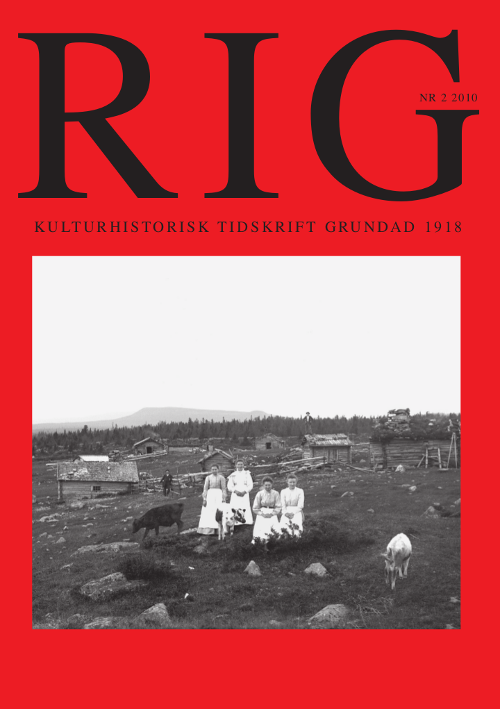Fyra berättelser om arkeologins tysta människor på en fäbod
Abstract
Four Narratives about the Silent People on a Summer Farm
Scandinavian summer farms (Sw. fäbodar) were used in the summer season for grazing livestock and making dairy products. Women alone or in small groups tended the animals and worked as dairy maids. Men also worked at the summer farms when houses and fences needed repairing, or in providing the firewood, and for harvesting, if the summer farm had meadows or arable land. Gender roles were created and recreated.
Munkbovallen, a summer farm in the low mountains in the province of Jämtland in Mid-Sweden, was in use from the 14th century to the mid-19th century. Four different approaches, using four different kinds of data, tell four different narratives about the people at the site: written history, through cadastral documents and land-survey maps; ethnography, through the folklore; archaeology through field and laboratory data; and through an artist’s paintings.
The historical documents present names of the male owners of the summer farms and the number of cows and goats tended there. The folklore records contain short conventional stories about the daily life and work during the summer. The archaeological findings present people as buttons and fragments of clay tobacco pipes, and the artist has painted her personal memories and feelings.
Even together the four narratives do not form one coherent story. They show the complexity and ambiguity of real people – and of understanding real people. That is the challenge to humanistic research.

